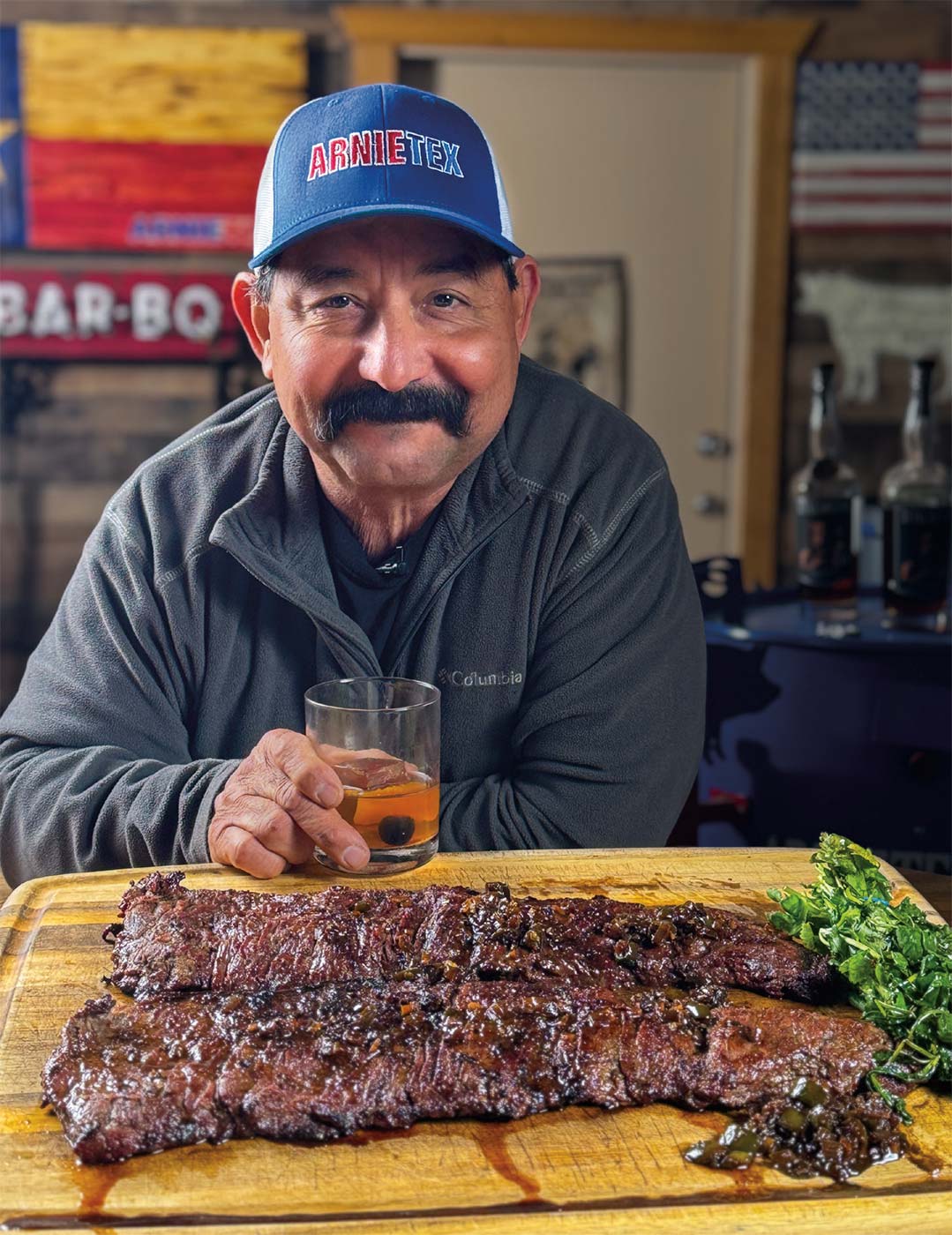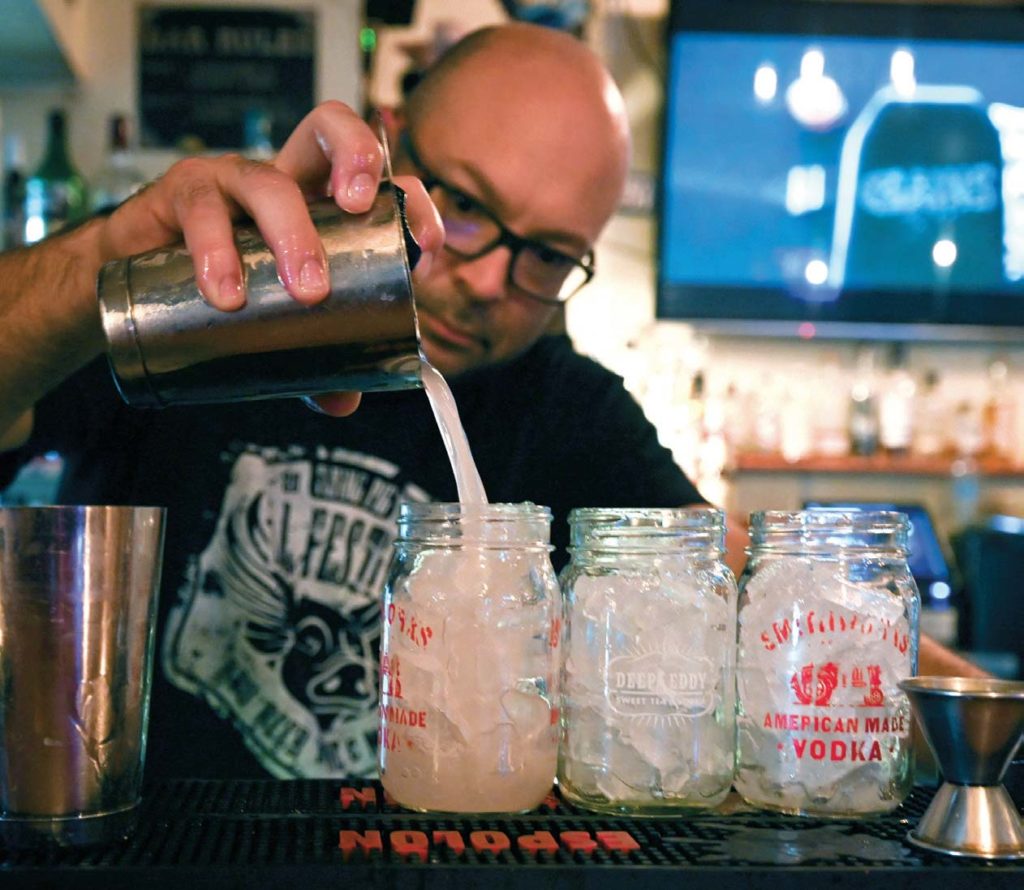
Waivers, Innovating and Love, Oh, My!
Survival became the goal for restaurant owners across the country when the pandemic forced them to shut down their establishments. In the Rio Grande Valley, survival took asking for help from legislators, shifting to new methods of meal delivery and communication, taking care of each other and receiving a whole lot of love from the community.
ACTS OF GIVING
Though they were working desperately to keep their businesses afloat, many restaurateurs did not lose sight of other Valley residents’ struggles and sought to help them.
Brothers Joel and Jesse Garcia own Teddy’s Barbecue in Weslaco, named one of My Favorite Texas BBQ Bites of 2020 and one of The Top 50 Best BBQ Joints 2021 by Texas Monthly. Joel and the owners of T-Ghost BBQ and Monterrey Café in Weslaco helped each other by sharing ideas and products. Teddy’s team also decided to set aside one day a week to serve the community. They focused on those who had lost their jobs, teachers working virtually and all of the people working to keep H-E-B supermarkets open.
“We fed H-E-B employees from Brownsville to Donna,” Joel said. “Over the last year, we fed 2,000 to 3,000 people. We’re not just here to take. We’re here to give as well.”
The restaurant proprietors interviewed for this article said the greatest show of support and giving came from the community members themselves. Were it not for them, the surviving eateries would not be open today. These restaurateurs will never forget their customers’ patience while waiting for curbside orders, their commitment to keeping local restaurants and farmers in business and their increased donations to the Brownsville Wellness Coalition (BWC). The BWC is a nonprofit organization providing programs that promote nutrition and healthy lifestyles.
“What I tell my staff is not to forget to tell our customers, ‘Thank you,’ Joel said. “They give us business, they allow us to pay our staff, they allow us to grow and they allow us to give to our community.”
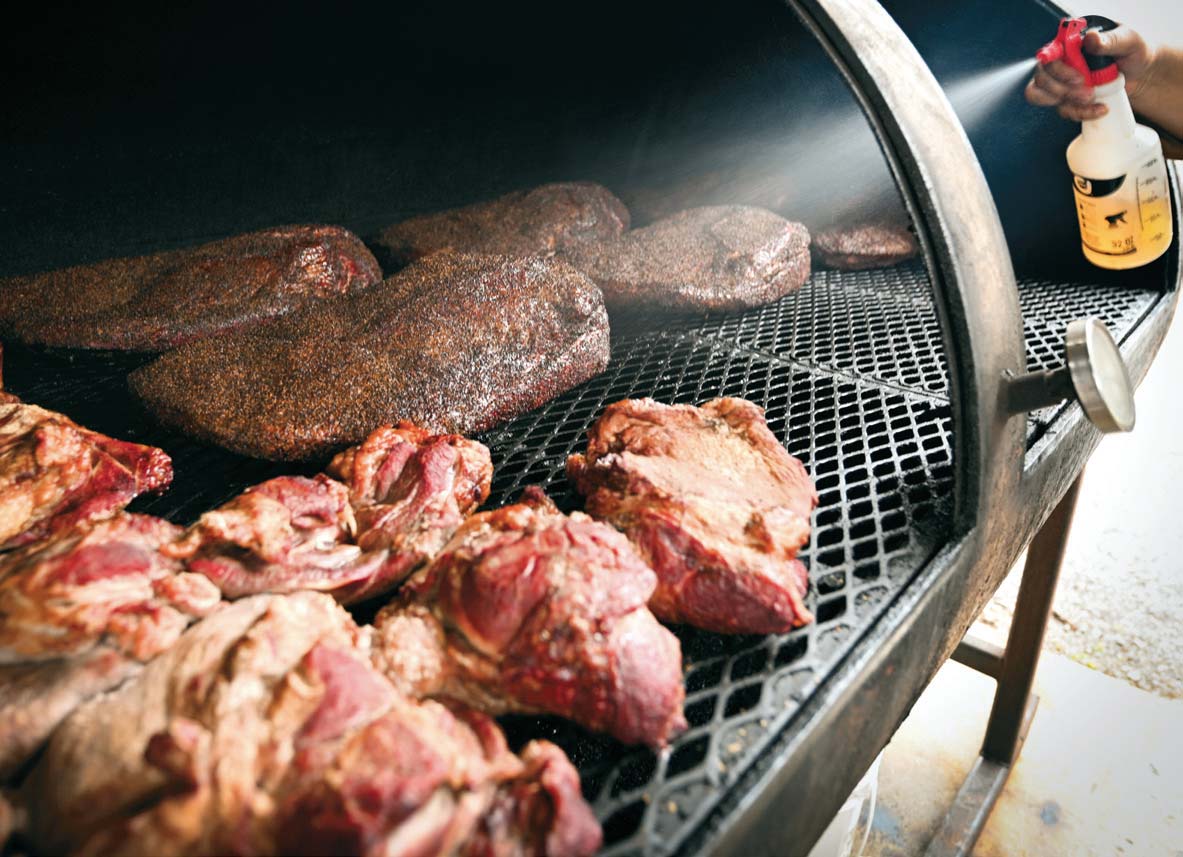
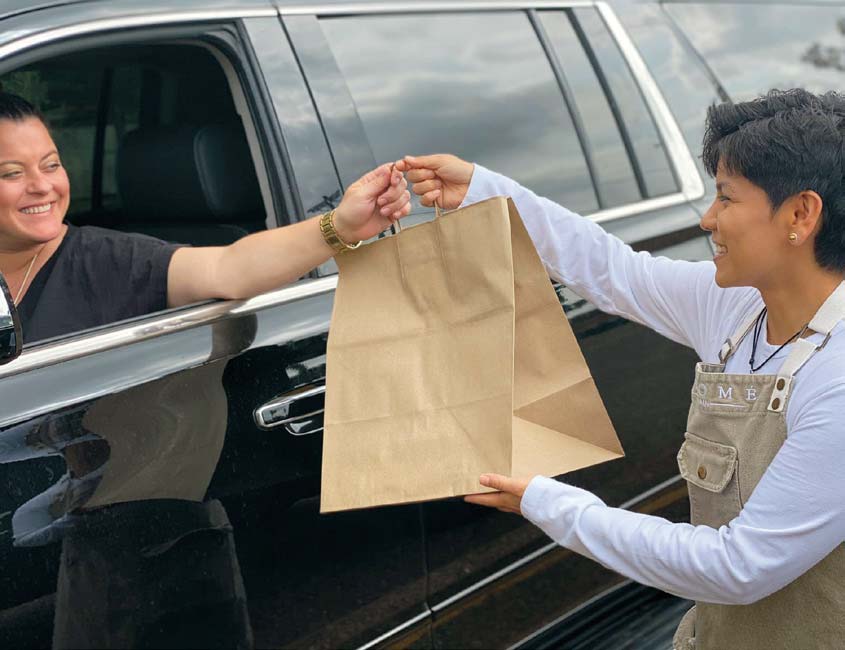
LEGAL EXCEPTIONS MADE
Larry Delgado and his wife Jessica own three restaurants in McAllen, Texas: house. wine. & bistro, Salomé on Main and Salt – New American Table. When the abrupt shutdown occurred, the Delgados had three restaurants with maximum inventory, ready to please the palates of their weekend crowds.
“We learned how resilient we can be and our team can be,” Larry said.
Larry serves as a director on the Texas Restaurant Association (TRA) board. The TRA played a significant role in pushing for statewide waivers to allow restaurant owners to sell raw meat and dry goods, like paper products, during a time of critical shortages while providing a way for restaurant owners to reduce inventory.
Another waiver allowed restaurants to sell beer, wine and mixed drinks with pickup and delivery orders that included food. While reducing inventory provided some immediate relief, staying in business meant shifting from a focus on indoor dining to curbside pickup and delivery.
All of the restaurant owners expressed gratitude to the Texas Legislature for the alcohol- to-go waiver and for making it permanent. They also credit the Texas Alcoholic Beverage Commission for advocating for the waiver and for its assistance during the most difficult times.
“They were so helpful,” said Hector Burnias, owner of Flying Pig Grill & Cantina and its sister restaurant, El Santuario Tacos & Cocktails in Olmito, just east of Brownsville. “They did not want anyone to go out of business.”
Burnias said he paid attention to what was going on throughout the state, which paid off when the shutdown occurred.
“Big markets were capitalizing on ‘bundles.’ ’Those bundles, like two or three cocktails or wine with 10 or 12 tacos, made a huge — and I mean HUGE — difference.” The philosopher Plato once said, “Our need will be the real creator.” Out of necessity, Burnias created margaritas by the Mason jar.
“It was actually brilliant,” he said, “because it allowed people to take the actual concept of Flying Pig and El Santuario home with them.”
“What I tell my staff is not to forget to tell our customers, ‘Thank you.’ They give us business, they allow us to pay our staff, they allow us to grow and they allow us to give to our community.”
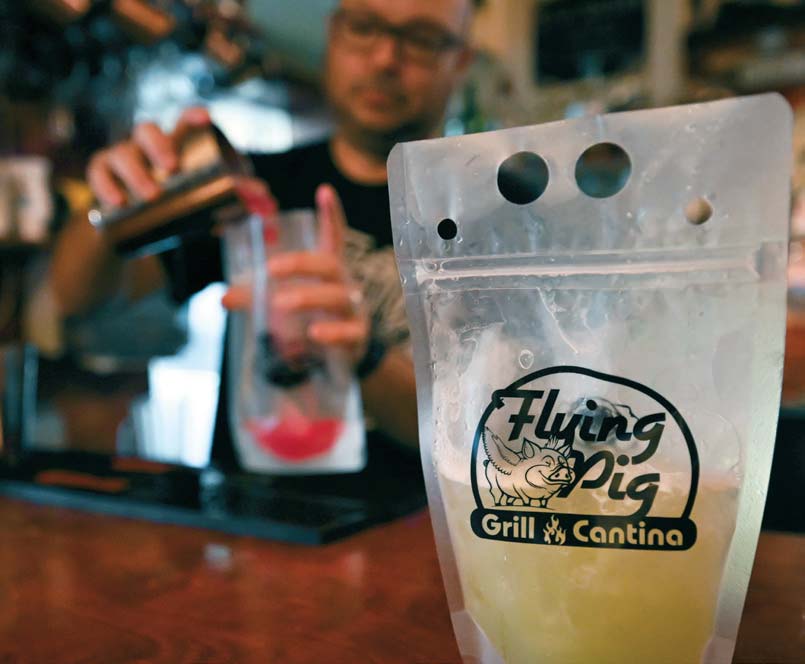
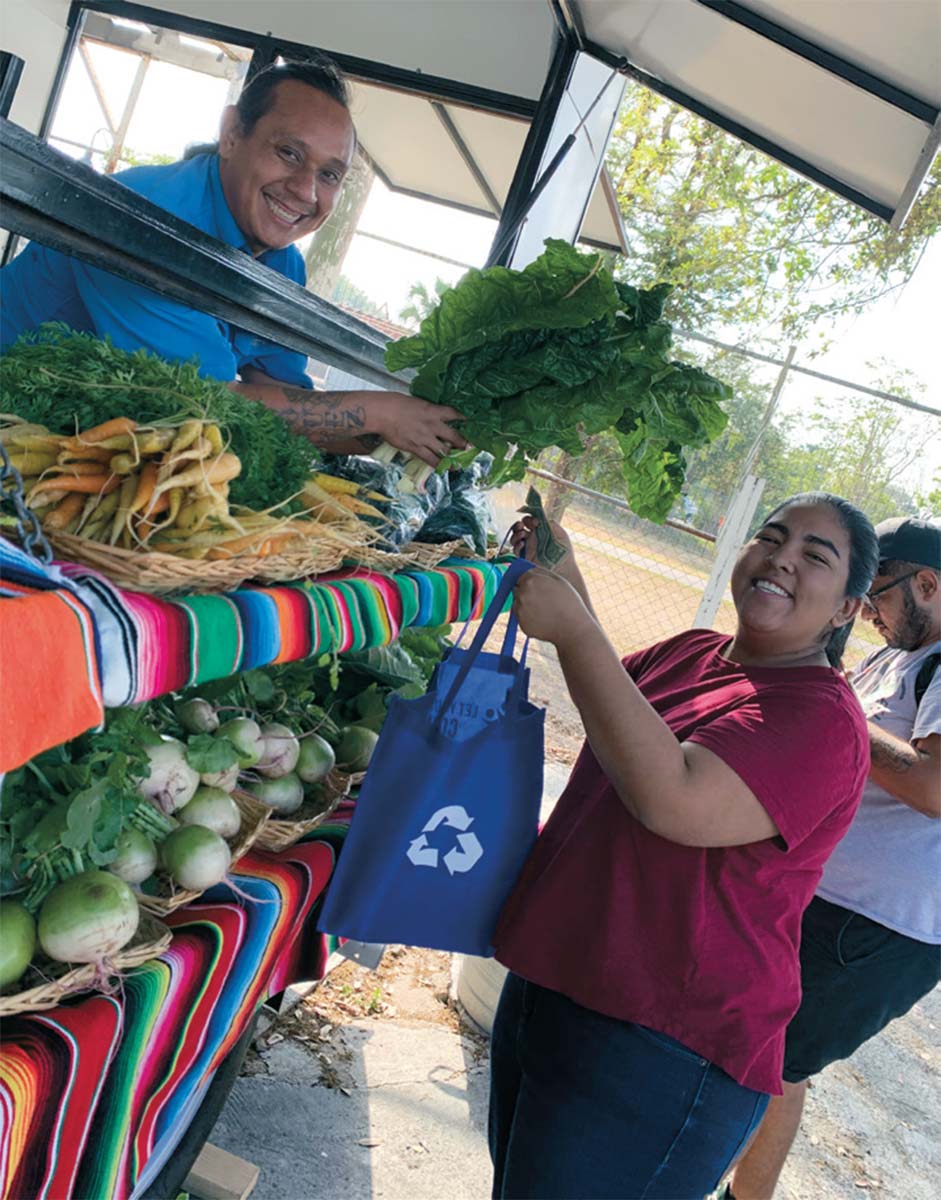
SHIFTING THE BUSINESS MODEL
Following the lead of friends who owned restaurants in New York and Georgia, the Garcias closed their dining room the week before the Texas shutdown, thinking they would be closed for one or two weeks. Soon realizing it would be much longer, they turned to Toast and its point-of-sale system.
“At first, we were doing walk-up orders,” Joel said. “But Toast set up an online ordering system for us in about two weeks, giving us free online ordering for six months. That really helped us out. We had just opened in September of 2019, so it was really scary.”
The Garcias also converted the Teddy’s dining room into a prep space for curbside pickups.
Back in McAllen, the Delgados used their private vehicles to deliver meals to customers, sometimes until midnight.
“We went from 115 team members down to 43,” Jessica said. “That was heartbreaking, but we worked with the hope, the goal, of being able to bring them all back.”
After hearing a friend, who is a chef in Houston, was in the H-E-B Grocery Co.’s heat and serve pilot program, the Delgados made their own pitch to provide meals to H-E-B customers as another way to raise revenue and meet this goal.
“Initially, we were turned away because the program was not available in South Texas,” Larry said, “but we shared our story, and we won their hearts. It has been a wonderful opportunity for us. They are a blessing.”
Social media proved instrumental, too, exposing the owners to how restaurants across the U.S. were responding, allowing them to share their own successful initiatives, and especially for communicating with customers.
“When you see how creative bars and restaurants in larger markets are, you realize you can be just as creative,” Burnias said.
Local farmers and community garden operators had to shift, too, according to Veronica Rosenbaum, executive director of the BWC. Those included the two urban farms and five community gardens that sell their harvest at the BWC’s Brownsville Farmers’ Market and to restaurants in the Rio Grande Valley.
“It was a whirlwind,” Rosenbaum said. “It was mind-blowing because our farms and gardens were thriving and then had to close for nine months.”
The BWC loaded up its Fresco Mobile Market every Friday, offering “bundle bags” with tomatoes, onions, celery and other vegetables and with bananas, strawberries, and mangos from the local produce terminal.
“We sold the bundle bags at the beginning,” Rosenbaum explained. “Then funders and foundations allowed us to give them away.” Every Friday, the market distributed 1,500 bundle bags of vegetables and 1,500 bags of fruit. “From the time we started in April 2020, we provided 96,000 bags of produce.” United Way of Southern Cameron County provided both funding and manpower.
In addition to the Friday bundle bag distributions, the BWC also held smaller-scale distributions during the week and supplied food to local food pantries.
“Our main goal was making sure our farmers stayed in business and their harvest didn’t go to waste,” Rosenbaum said.
These enterprises getting to welcome back their staff is something the owners and Rosenbaum see as a gift.
“We couldn’t be more grateful about how the community came together so we could survive,” said Burnias.



